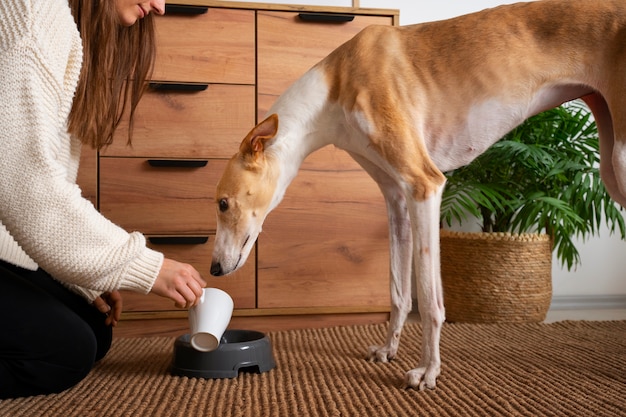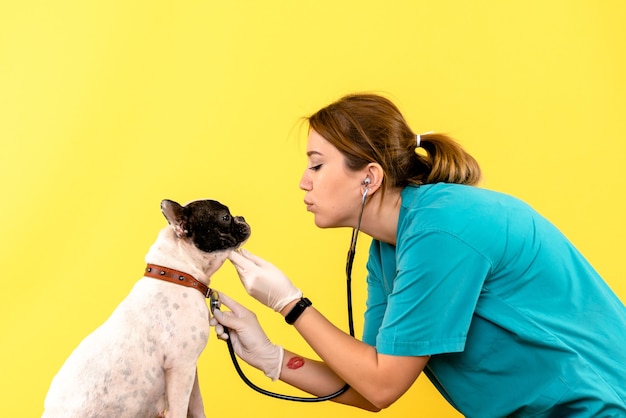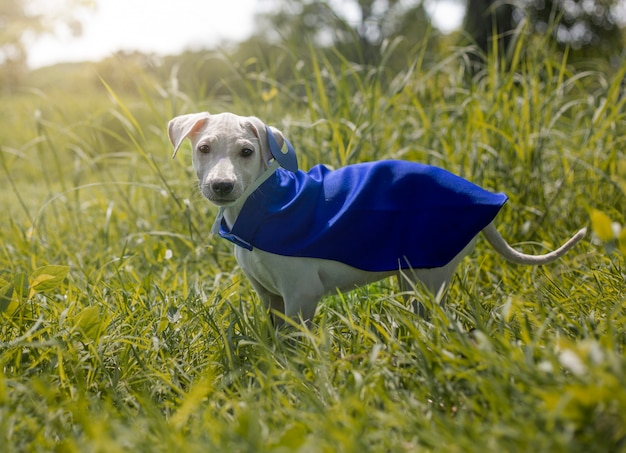Why Is My Pet Drinking More Water? Common Causes Explained


Why Is My Pet Drinking More Water? Common Causes Explained
As a loving pet owner in McKinney, TX, you know your pet’s habits better than anyone. It can be alarming to notice your dog or cat suddenly emptying the water bowl more often or asking for water throughout the day. Increased thirst in pets, also known as polydipsia, is a common concern that can have a range of explanations. At Pet Method Dallas Fort Worth, our veterinary team often sees families wondering whether this change is just a passing phase or a sign of a deeper health issue.
In this comprehensive guide, we’ll answer your questions about what might cause your pet to drink more water, which signs require prompt attention, and how our veterinarians at 260 N Coit Rd, Suite 130, McKinney, TX can help. We’ll also discuss prevention tips and when to schedule a visit for diagnostic testing or a wellness examination. Whether you’re searching for “quality vet near me” or specific pet diagnostic laboratory services in McKinney, our animal hospital is here to support you and your pet every step of the way.
Recognizing the Signs: Is Your Pet Drinking Too Much Water?
Understanding what qualifies as “too much” water can be tricky, since every pet’s needs are different. While a sudden increase is often the first sign pet owners notice, other changes can signal that your pet’s thirst warrants further attention. In many cases, increased thirst in pets is accompanied by other subtle changes.
Key symptoms of a pet drinking too much water include needing to refill the water bowl more frequently, noticing your dog or cat asking for water at unusual times, and observing accidents in the house or increased trips outside to urinate. Additionally, you may see that your pet seems restless, is panting more than usual, or wakes you at night to go outside. For cats, watch for more frequent litter box visits or larger clumps of urine in the box.
Pay attention to how these changes develop. Sometimes, increased thirst comes on gradually, while in other cases it is quite sudden. Both patterns can point to underlying health conditions. If your pet has started a new medication, changed diets, or the weather has shifted to hot Texas days, these factors may also influence water intake.
If you are ever unsure whether your pet’s thirst is excessive, it’s always better to err on the side of caution. Our veterinary professionals can help you determine if a sick visit or wellness check is needed for your companion.
Common Causes of Increased Thirst in Pets
There are many reasons why a pet might suddenly begin drinking more water, ranging from benign lifestyle changes to serious medical conditions. Understanding the potential causes is the first step toward finding the right solution.
Environmental and Lifestyle Factors
Some pets naturally drink more during hot weather, after vigorous exercise, or when eating dry kibble instead of canned food. The climate in McKinney and surrounding communities often brings warm temperatures, which can increase your pet’s water needs. If you have recently switched your pet’s food, added salty treats, or noticed your home heating system running more frequently, these can also lead to a temporary uptick in thirst.
Medical Conditions to Consider
While simple explanations may be at play, persistent increased thirst in pets is often one of the first signs of illness. Common medical causes include diabetes mellitus, which causes both increased thirst and urination due to high blood sugar levels. Kidney disease is another frequent culprit, especially in older pets; the kidneys lose efficiency at conserving water, leading to greater fluid intake. Cushing’s disease, which affects hormone production, can also cause excessive drinking.
Other potential causes include urinary tract infections, liver disease, some forms of cancer, and side effects from medications such as steroids or diuretics. For cats, hyperthyroidism is a common diagnosis when increased thirst is paired with weight loss and increased appetite.
If your pet is a senior or has a history of chronic disease, it is particularly important to monitor for these conditions. Our geriatric veterinary services in McKinney are designed to address the unique needs of aging pets, including changes in thirst, appetite, and overall behavior.
Diagnosis and Treatment: What to Expect from Your Veterinarian
When you schedule an appointment at Pet Method Dallas Fort Worth to address increased thirst in pets, our veterinarians will begin by taking a thorough history and conducting a complete physical examination. We will ask about your pet’s routine, diet, any recent changes, and other symptoms you may have noticed.
Diagnostic Testing in McKinney
To pinpoint the underlying cause, our clinic offers a full range of pet diagnostic laboratory services in McKinney. These may include blood tests to check organ function, urine analysis to evaluate kidney health and detect infection, and sometimes advanced imaging such as ultrasound or digital radiology. For example, if diabetes is suspected, we will measure blood glucose and urine sugar levels. If kidney disease is a concern, our team may recommend monitoring kidney values and electrolytes.
Once a diagnosis is made, our veterinarians will tailor treatment to your pet’s specific condition. Management often involves medications, dietary changes, or in some cases, fluid therapy. For chronic conditions like diabetes or kidney disease, ongoing monitoring and adjustments to the care plan will help ensure the best possible quality of life for your pet.
Our approach is always personalized, taking into account your pet’s age, lifestyle, and any concurrent health issues. If your pet’s increased thirst is due to a treatable infection or short-term illness, we will discuss a course of antibiotics or other relevant therapies. For lifelong conditions, our veterinary professionals will work with you to create a comprehensive plan that supports both you and your pet.
Home Care and Prevention: What Pet Owners Can Do
While medical intervention is sometimes necessary, there are several steps you can take at home to support your pet’s health and potentially prevent issues that cause increased thirst. Make sure fresh water is always available, especially in the Texas heat, and monitor your pet’s intake regularly. Feed a balanced diet that matches your pet’s age and health needs, and limit salty treats or table scraps that might encourage excess drinking.
Staying proactive with regular wellness examinations in McKinney is key. Annual or biannual check-ups allow our veterinary team to detect changes early and address any risk factors for conditions like diabetes or kidney disease. If your pet is a senior or has a history of health concerns, we may recommend more frequent visits and specialized testing to ensure optimal care.
At home, keep a log of your pet’s water intake and urination habits if you notice changes. This information is invaluable for your veterinarian when making a diagnosis. Promptly address any new symptoms such as decreased appetite, vomiting, diarrhea, lethargy, or sudden weight loss, as these may indicate more urgent concerns.
When to Schedule a Veterinary Visit for Increased Thirst
Not every increase in water intake signals a medical emergency. However, there are clear guidelines for when to seek professional help. If your pet’s thirst is accompanied by other symptoms like vomiting, diarrhea, weakness, sudden weight changes, or noticeable behavior changes, contact our veterinary professionals right away. Rapid onset of these signs may indicate a condition that requires immediate attention.
Persistent increased thirst in pets that lasts more than a few days, or occurs without a clear explanation like a change in diet or weather, should also be evaluated. Timely veterinary diagnostics in McKinney can often catch diseases in their earliest stages, improving outcomes and quality of life for your pet.
If you are ever in doubt, our compassionate team is here to help you navigate your pet’s health concerns. Scheduling a sick visit or comprehensive wellness check is the best way to ensure your pet receives the care they need.
Supporting Your Pet’s Health at Pet Method Dallas Fort Worth
Noticing your pet drinking too much water can be stressful, but you are not alone. The veterinary team at Pet Method Dallas Fort Worth is dedicated to providing thorough, individualized care for every family we serve in McKinney and surrounding communities. Our clinic offers a full spectrum of veterinary diagnostics in McKinney, as well as preventive health programs tailored to your pet’s unique needs.
If your pet’s habits have changed or you’re searching for the “best veterinarian near me,” we invite you to schedule an appointment with our experienced veterinarians. We are here to answer your questions, provide trusted guidance, and deliver quality veterinary services near you. To discuss your concerns or book a visit, call us at (469) 581-8609 or stop by our convenient location at 260 N Coit Rd, Suite 130, McKinney, TX.
For more information about our approach to common pet health conditions, or to learn about our preventive care services, explore our website or reach out to our veterinary professionals today. Your pet’s well-being is our top priority, and we are honored to be your trusted “vet near me” in McKinney.
This blog is intended for informational purposes only and should not be used as a substitute for professional veterinary advice. Always consult with your veterinarian for specific recommendations and care for your pet.


















